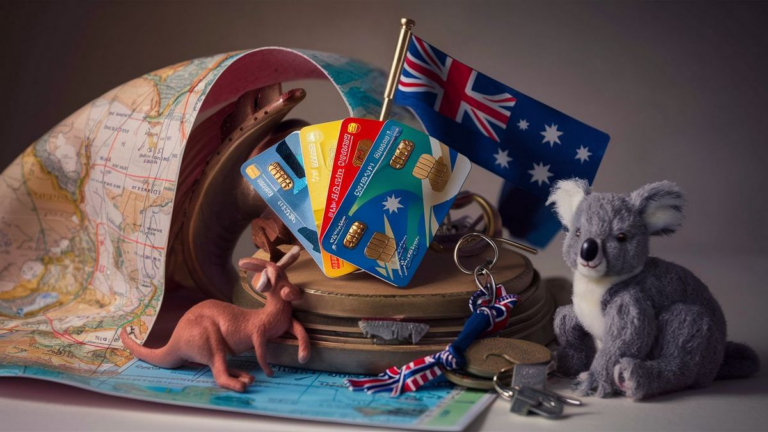When it comes to choosing the best credit card to use in Australia, it’s essential to consider various factors to ensure you make an informed decision that aligns with your financial needs and lifestyle. With a plethora of options available in the market, finding the right credit card can seem daunting, but with careful consideration, you can find one that offers excellent benefits and rewards tailored to your preferences.
Factors to Consider
Before diving into the array of credit card options, it’s crucial to assess your spending habits, financial goals, and lifestyle. Here are some key factors to consider:
- Rewards and Benefits: Evaluate the rewards programs and benefits offered by different credit cards, such as cashback, travel rewards, bonus points, and complimentary perks like travel insurance or concierge services.
- Interest Rates: Compare the interest rates charged on purchases, balance transfers, and cash advances. Opt for a credit card with competitive rates to save on interest charges.
- Annual Fees: Consider the annual fees associated with the credit card and weigh them against the benefits offered. Some cards may have higher fees but provide superior rewards and perks, making them worthwhile for frequent users.
- Introductory Offers: Look out for introductory offers, such as 0% interest on purchases or balance transfers for a specified period, which can help you save money and pay off existing debt more efficiently.
- Additional Features: Assess additional features like contactless payment options, mobile app functionality, and security measures to enhance your overall cardholder experience.
Top Credit Cards in Australia
After considering the above factors, here are some of the top credit cards renowned for their benefits and reliability in Australia:
| Credit Card | Rewards Program | Annual Fee | Interest Rate |
|---|---|---|---|
| 1. Rewards Card | Points-based rewards system with bonus point offers | $100 | 15.99% p.a. on purchases |
| 2. Travel Card | Airline miles rewards program with complimentary travel insurance | $150 | 18.99% p.a. on purchases |
| 3. Cashback Card | Cashback rewards on eligible purchases with no annual fee | $0 | 19.99% p.a. on purchases |
Choosing the best credit card in Australia requires careful consideration of various factors, including rewards, fees, and interest rates. By assessing your individual needs and comparing the features of different credit cards, you can select one that offers maximum value and benefits suited to your lifestyle. Remember to manage your credit responsibly and make timely payments to fully leverage the perks of your chosen credit card.
Frequently Asked Questions
Here are some commonly asked questions about using credit cards in Australia:
- How do I apply for a credit card?
- What documents are required for a credit card application?
- Can I have multiple credit cards?
- How do I check my credit card balance?
- What should I do if my credit card is lost or stolen?
How do I apply for a credit card?
To apply for a credit card in Australia, you can usually do so online through the bank or financial institution’s website. Alternatively, you can visit a branch in person to complete an application. Make sure to have necessary documents like identification, proof of income, and residential address details ready.
What documents are required for a credit card application?
The specific documents required may vary depending on the issuer, but commonly needed documents include proof of identity (such as a driver’s license or passport), proof of income (such as pay slips or tax returns), and proof of address (such as utility bills or rental agreements).
Can I have multiple credit cards?
Yes, you can have multiple credit cards in Australia. However, it’s essential to manage them responsibly and avoid accumulating excessive debt. Having multiple cards can offer flexibility and benefits tailored to different spending categories or preferences.
How do I check my credit card balance?
You can typically check your credit card balance through online banking portals, mobile banking apps, or by calling the bank’s customer service hotline. Many issuers also provide monthly statements either electronically or via mail, detailing your balance, transactions, and due dates.
What should I do if my credit card is lost or stolen?
If your credit card is lost or stolen, it’s crucial to report it to your bank or credit card issuer immediately. Most banks offer 24/7 customer service hotlines for reporting lost or stolen cards. Once reported, the issuer will typically deactivate the card to prevent unauthorized transactions and issue a replacement card.
Additional Tips for Credit Card Users
Aside from choosing the right credit card, here are some additional tips to make the most of your credit card experience:
- Set up automatic payments to avoid missing due dates and incurring late fees.
- Regularly review your statements to identify any unauthorized transactions or errors.
- Avoid maxing out your credit limit to maintain a healthy credit utilization ratio.
- Utilize budgeting tools and apps to track your spending and stay within your financial goals.
See also:






